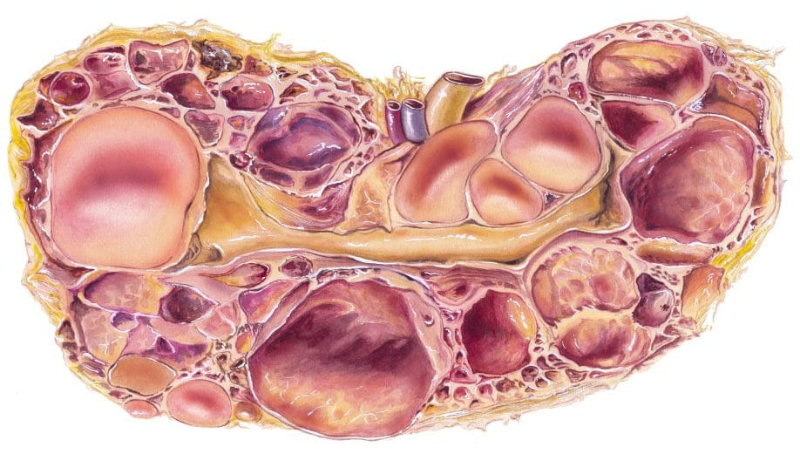
New study aims to prevent cyst formation in ADPKD
It is with great pleasure we announce that we are funding Professor Albert Ong on his mission to discover and test new treatments for autosomal dominant polycystic kidney disease (ADPKD).

Professor Albert Ong
The Problem
Autosomal dominant polycystic kidney disease (ADPKD) is the most common genetic kidney disease and affects approximately 70,000 people in the UK. Over time, fluid filled sacs known as cysts, replace the healthy kidney tissue causing their function to decline. However not all cells in the ADPKD kidney become cysts and it is not fully understood why or how cysts form. By studying the differences between cells that become cystic and those that don’t, scientists can get a much better understanding of how this process works and hopefully develop ways to stop it.
Regulators, Mount Up!
Professor Albert Ong and his colleagues at Sheffield have been working on this problem for some years and have discovered that a structure known as the actin cytoskeleton could be important early in the disease process. The actin cytoskeleton is best thought of as the internal scaffold that supports the shape and size of the cell. They have found key differences between the actin cytoskeleton of healthy cells and that of cystic cells. In particular, they found that an enzyme, RhoA-associated protein kinase (ROCK), is constantly ‘switched on’ in the cells that form cysts, leading to the inability of the actin scaffold to maintain normal cell shape and size. Albert and his team are planning to study how both common and rare gene faults found in ADPKD patients affect the ability of RhoA to regulate ROCK and thus alter the function of the actin cytoskeleton.
What this might mean for PKD patients
Through a detailed study into the mechanisms of cyst formation due to two different gene variants that cause ADPKD, Albert will be able to define new therapeutic targets that are common to how all cysts form and test new drugs that restore the function of the actin cytoskeleton with the aim of preventing cysts from forming.
Albert said: “I am thrilled to receive this grant funded by KRUK and the PKD Charity. It will enable us to make a real difference to ADPKD patients through a better understanding of how cysts form and by developing drugs that could prevent cysts from forming. If positive, this would be a major step towards finding a 'cure for ADPKD."
Professor Ong's project is one of three brand new awards funded by our groundbreaking research partnership with Kidney Research UK, and marks the next step in this exciting time for PKD research.
ADPKD, Research, Grants awarded, PKD
- Hits: 6809
